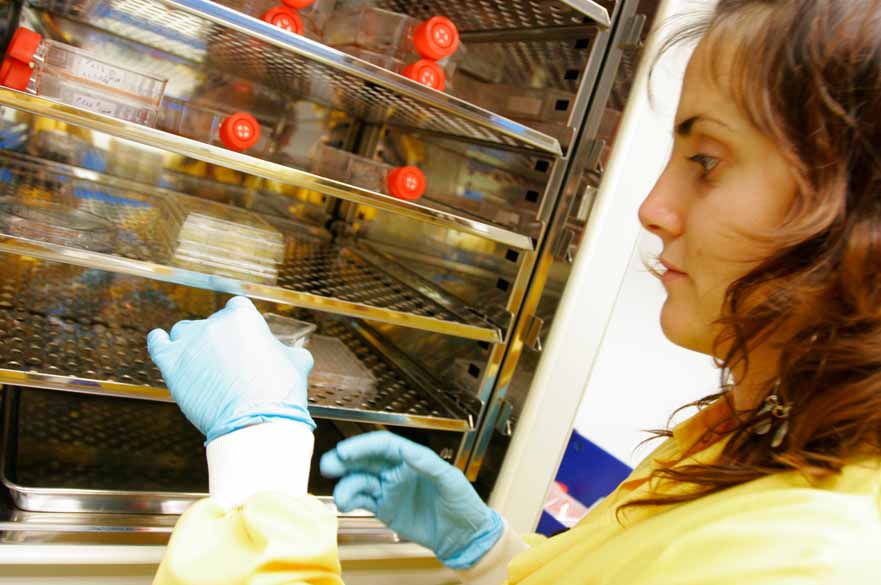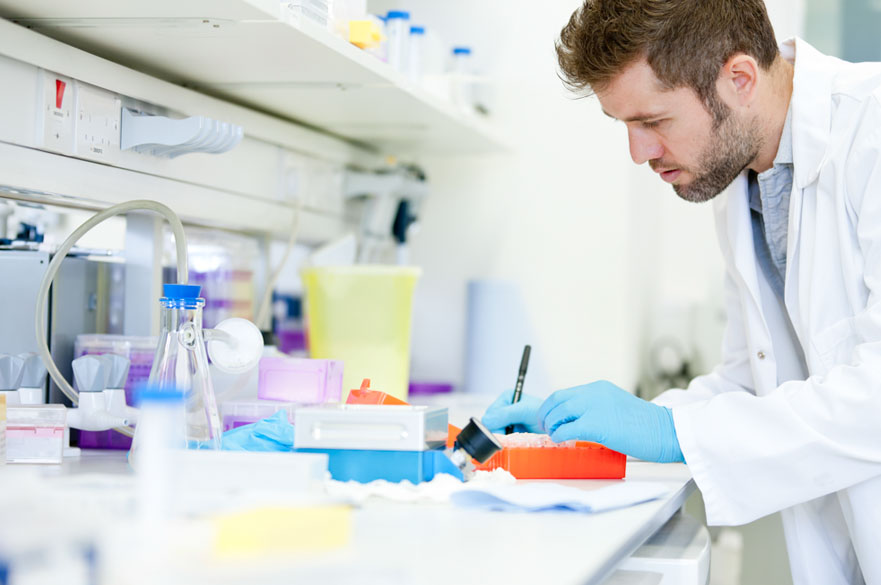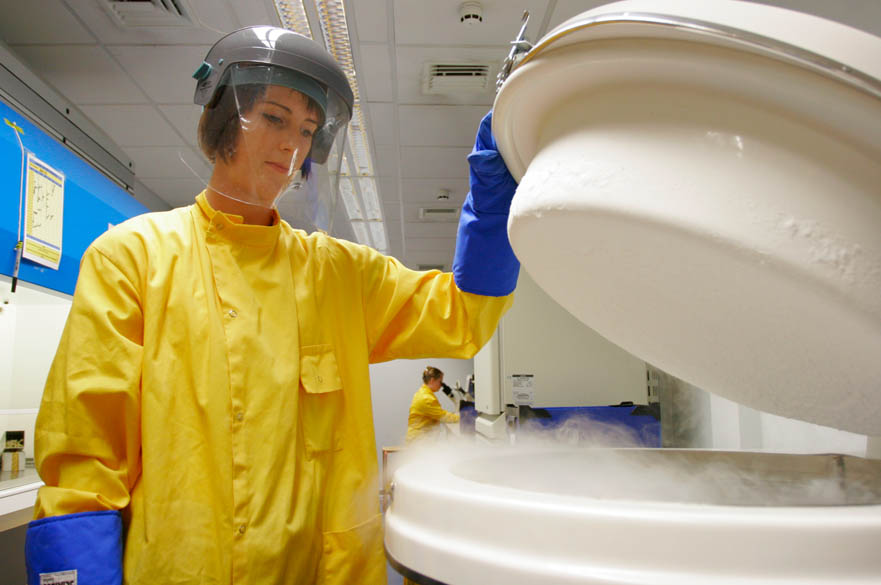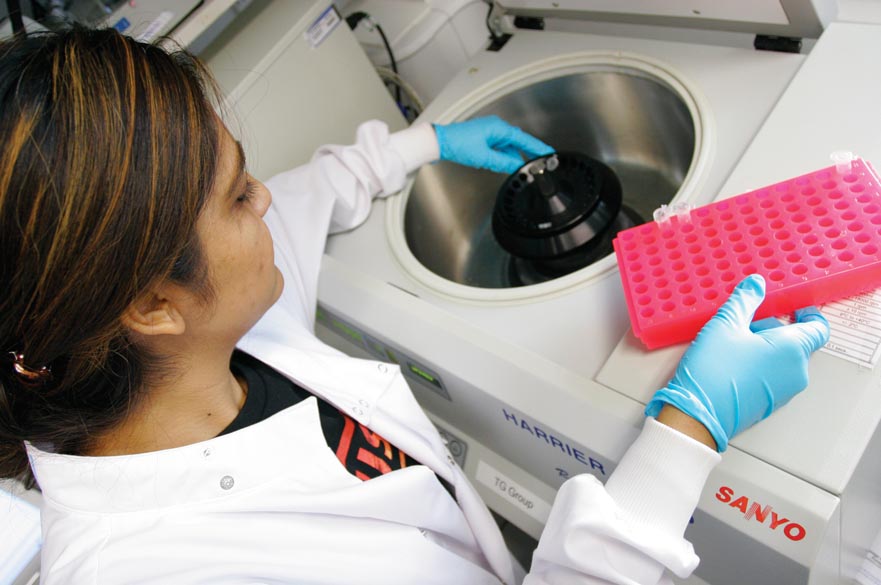Biomedical Science MSc
About this course
This accredited Biomedical Science postgraduate degree will provide you with a biological understanding of human disease processes, the treatment principles of such diseases, and the underlying biological disciplines that enable their study and explanation.
You will benefit from our extensive links with BioCity Nottingham, the city's groundbreaking healthcare and biosciences centre. One of the largest innovation and incubation centres of its kind in Europe. Not only will you be able to demonstrate your understanding of the biological basis of disease, its investigation and treatment, you will also demonstrate expertise in highly specialised and advanced research.
You may also be interested in MSc Biomedical Science by Flexible Learning - distance learning option.
What you’ll study
If you are part-time or a sandwich student, you will continue to study the second year from the modules listed below.
Semester 1 (Oct - Dec) - Core modules
Cell Culture and Antibody Technology (20 cp)
You'll explore the scientific basis of cell culture and antibody technologies and assess how they're used to solve problems in biotechnology, molecular biosciences, and biomedical sciences. You'll look at the relationship between cell and antibody technologies and other technologies, particularly recombinant DNA technology, and how these may develop in the future.
Semester 1 (Oct - Dec) - Optional modules
Biology of Disease (20 cp)
You’ll gain an understanding of the pathogenesis of cancer, cardiovascular disease, diabetes and kidney fibrosis. The lectures and seminars examine cancer aetiology, the genotypic and phenotypic properties associated with tumour progression, metastasis, and the current approaches to cancer gene therapy and immunotherapy.
Microbial Diagnostics (20 cp)
This module aims to understand the rationale and process of designing modern microbial diagnostic assays. Furthermore, you'll explore the theory and rationale of techniques such as culture-based diagnosis, serology, PCR, real-time PCR, microarrays, and sequencing for infectious disease diagnostics. You'll gain practical experience in performing real-time PCR detection from a sample.
Medical Microbiology (20 cp) (Blended delivery)
Interactive and exciting eLearning material will be the basis for the module. You’ll develop an appreciation of the importance of medical microbiology in diagnosing, preventing, and treating disease and gain a high understanding of the subject.
Molecular Biology (20 cp)
During this module, you'll consolidate your knowledge of the molecular biology of prokaryotes and eukaryotes and how to prove how genomes are mutated, analysed and manipulated in detecting, studying and treating disease. You'll study the control of gene expression in prokaryotes and eukaryotes and the control at transcriptional, post-transcriptional (RNAi, microRNA) and translational levels.
Semester 2 (Jan - April) - Core modules
Research Methods and Bioethics (20 cp)
This module encourages you to think beyond your subject and interact accordingly. You'll gain a solid foundation in the literature review, research design and planning, data analysis and poster presentation by focusing your studies on a related ethical issue. Ethical issues in research will also be explored as you discover when and how to obtain ethical clearance in accordance with ethical governance at NTU.
Semester 2 (Jan - April) - Optional modules
Pharmacology (20 cp)
In this module, you’ll see how genes influence our physiology and pharmacological response to drugs used to treat pathological conditions. You’ll develop the concept of tailoring therapeutic drugs as the future of drug design, enabling physicians to prescribe personalised medical treatments based on an individual’s genome.
Cellular Pathology (20 cp) (Blended delivery)
Through distance learning, you’ll explore the key topics in cellular pathology, with particular relevance to current medical and diagnostic practice. You’ll apply your specialist knowledge to analyse data and information critically. This will include an appreciation of the laboratory's role in diagnosing and treating illnesses alongside the fundamental issues associated with modern laboratories.
Haematology and Transfusion Science (20 cp) (Blended delivery)
This eLearning module aims to give you an in-depth understanding of the key topics in haematology and transfusion science. You’ll develop an appreciation of the importance of diagnosis, prevention and treatment of disease and a high level of understanding of the subject with particular relevance to current medical and diagnostic practice.
Semester 3 (April - May) - Core module
Research Project (60 cp)
In consultation with a supervisor at NTU, you'll select a research topic comprising an original, defined research question (or series of such questions), and develop a written research proposal for the Project. You'll then present this proposal as part of the Research Methods and Bioethics module.
Alongside your study you also have the opportunity to learn a new language. The University Language Programme (ULP) is available to all students and gives you the option of learning a totally new language or improving the skills you already have. Find out more about the ULP.
We regularly review and update our course content based on student and employer feedback, ensuring that all of our courses remain current and relevant. This may result in changes to module content or module availability in future years.
How you're taught
Teaching methods
- lectures and guided reading
- supported by the University’s virtual learning portal and other electronic facilities
- seminars
- given extensive guidance and practice in written and oral presentation skills
- delivery of the programme by using professional practitioners in the teaching team
Assessment
- written assignments
- computer-aided learning packages
- dissertation
- oral presentation
- laboratory reports
- formal examinations.
Research informed teaching
By daring to think differently our research is tackling real-world issues. The subjects you will study with us are informed by our research so you can be sure your knowledge will be cutting-edge in your field. In the last Research Excellence Framework (REF 2021) - the UK's system for assessing the quality and impact of research in universities - we’re proud that 99% of NTU’s Allied Health Professions, Dentistry, Nursing and Pharmacy submission was assessed to be world-leading or internationally excellent.
How you're assessed
Coursework (65%) and written (35%)
Contact hours
Lectures / seminars / workshops (20%) and independent study (80%)
Careers and employability
Successful completion of this course positions students for high-level employment in the biosciences sector, or further research at PhD level and beyond.
Placements
NTU is one of the most employment-focused universities. Increasingly, employers want to recruit graduates who have real-world work experience. That’s why all of our courses, across every subject area, offer you a work experience opportunity. Our experts help build and support your future with a range of career programmes and events.
The school of Science and Technology will work closely with you to help find a placement and strengthen your CV and interview techniques. You'll be supported and assessed throughout your placement year and will write a reflective report and diary at the end of your placement. When you successfully complete your placement and submit your placement report, you will be eligible to receive an additional award of a Postgraduate Diploma in Professional Practice.
Please note that placements are not guaranteed and the process is competitive through an application and interview process.
If you take the sandwich route, and start this course in September / October you will complete your placement following your taught modules and research project. If you start in January you will complete one term of taught modules and your project, then go on placement before returning to NTU for your final term of modules.
Our recent students have taken placements across a wide range of companies including the NHS, Pfizer and Public Health England. They secured varied roles such as Trainee Biomedical Scientists (Immunology), Biomedical Science Assistant and Volunteer Mentor.
Re:search Re:imagined
To us, research is about more than writing papers and proposing new ideas. By daring to think differently, we’re disrupting the research landscape and finding the answers to the questions that really matter. From conservation management to sustainable farming, we’re inspiring the brightest minds to rise up and find solutions to some of the most significant global challenges facing society.
Learn more about Re:search Re:imagined
NTU Enterprise
You'll also have the opportunity to turn your ideas into a viable business with help from NTU Enterprise, NTU's purpose-built Centre for Entrepreneurship and Enterprise, a support centre to help students create, develop and grow their own businesses.
Campus and facilities
You’ll mainly be studying in the Interdisciplinary Science and Technology Centre (ISTeC) and Rosalind Franklin Buildings with access to facilities including our extensive SuperLab, with space for almost 200 students.
Our self-contained, community-focused Clifton Campus has been designed to keep students busy between lectures. Catch-up with your coursemates in the Pavilion’s barista café and Refectory; brainstorm group presentations in chic and stylish study spaces; enjoy some proper R&R in The Point, home of our Students’ Union. The campus also hosts the multimillion-pound Clifton Sports Hub, offering great options for everyone — whatever your interests, and however competitive you’d like to get!
You’re also right next to the bright lights of Nottingham — one of Britain’s top 10 student cities, and one of Europe’s top 25. All through termtime, a dedicated on-campus bus service will get you to the heart of the action (and back) in under 25 minutes. You’ll find a city stuffed with history, culture, and well-kept secrets to discover at your leisure: enjoy lush green spaces, galleries, hidden cinemas and vintage shopping by day, and an acclaimed food, drink and social scene by night.
Entry requirements
UK students
Academic entry requirements: 2.2 honours degree or equivalent in a relevant discipline such as biology, biomedical science, pharmacology or microbiology.
Applicants with relevant employment experience or other relevant qualifications will also be considered.
Additional requirements for UK students
There are no additional requirements for this course.
Other qualifications and experience
We welcome applications from students with non-standard qualifications and learning backgrounds and work experience. We consider credit transfer, vocational and professional qualifications, and any work or life experience you may have.
You can view our Recognition of Prior Learning and Credit Transfer Policy which outlines the process and options available, such as recognising experiential learning and credit transfer.
Getting in touch
If you need more help or information, get in touch through our enquiry form.
International students
Academic entry requirements: 2.2 honours degree or equivalent in a relevant discipline such as biology, biomedical science, pharmacology or microbiology.
Applicants with relevant employment experience or other relevant qualifications will also be considered.
We accept equivalent qualifications from all over the world. Please check your international entry requirements by country.
English language requirements: See our English language requirements page for requirements for your subject and information on alternative tests and Pre-sessional English.
Additional requirements for international students
There are no additional requirements for this course.
English language requirements
View our English language requirements for all courses, including alternative English language tests and country qualifications accepted by the University.
If you need help achieving the language requirements, we offer a Pre-Sessional English for Academic Purposes course on our City campus which is an intensive preparation course for academic study at NTU.
Other qualifications and experience
We welcome applications from students with non-standard qualifications and learning backgrounds and work experience. We consider credit transfer, vocational and professional qualifications, and any work or life experience you may have.
You can view our Recognition of Prior Learning and Credit Transfer Policy which outlines the process and options available, such as recognising experiential learning and credit transfer.
Sign up for emails
Sign up to receive regular emails from the International Office. You'll hear about our news, scholarships and any upcoming events in your country with our expert regional teams.
Getting in touch
If you need advice about studying at NTU as an international student or how to apply, our international webpages are a great place to start. If you have any questions about your study options, your international qualifications, experience, grades or other results, please get in touch through our enquiry form. Our international teams are highly experienced in answering queries from students all over the world.
Policies
We strive to make our admissions procedures as fair and clear as possible. To find out more about how we make offers, visit our admissions policies page.












